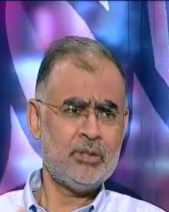Nadeem M Qureshi
In the post September 11 world much has been said and written about terrorism. The 2001 events in New York had nothing to do with Pakistan. But since that time, a series of poor decisions at multiple levels, in and outside Pakistan, have put the country squarely in the eye of an expanding maelstrom of terrorism. Is it now possible to still these swirling waters?
History first: Mr. Bush Jr made a grave error in his decision to invade Afghanistan. It was a vengeful act whose consequences have disproportionately fallen on the innocent Afghan people. It was not even the Taliban Mr. Bush was after. He wanted to get at Al-Qaeda and its leadership. This was a group of foreigners who had ensconced themselves as ‘guests’ of the Taliban government. Did it make sense to invade, destabilize, and destroy one of the poorest countries on the planet to get at a group of outlaws?
The consequences are clear. Tens of thousands of people have lost their lives, a process that continues today. Many millions more live in desperation and fear. Pakistan has been destabilized. The Taliban are resurgent. Terrorism has metastasized. America is bleeding men and money.
It is incontestable that America made an egregious decision. But did we in Pakistan do better? General Pervez Musharraf was in charge. He is too clever a man not to realize that America was about to blunder into another Vietnam. And he could not have been ignorant of the likely fallout of this misadventure inside Pakistan. Yet he acquiesced to align Pakistan with this ‘war on terror’. Why?
In the ante September 11 world, Mr Musharraf was an international pariah. He was a reluctant dictator who had been obliged to take charge in a coup that was triggered by the obtuseness of the then Prime Minister – Mr. Nawaz Sharif – who, amazingly, is now again the country’s leader for a third time. Mr. Musharraf did not even need to do a back of the envelope calculation to realize that this was his path to legitimacy. And so another tragically erroneous decision was taken.
Poor, myopic and self serving leadership in both America and Pakistan have brought us where we are today. In Mr. Obama, America elected a leader who seemed to understand. But he did not. He extricated America from one mistake – Iraq – only to plunge it deeper into another in Afghanistan. In Pakistan we have done no better. Our political leadership – whether they sit in power or in the opposition – is congenitally compromised. Understanding what needs to be done in Pakistan and then getting it done is beyond their God given abilities.
Let’s understand why quality of leadership is important. Combating terror of the sort we face in Pakistan today is complicated. There are no simple answers. There are those who argue that we talk to the terrorists. And those who say that brute force is the only language that will be understood. Both views have problems. It is difficult to ‘talk’ to people who have slaughtered thousands of innocent people. What do you say to them? Stop killing more and all will be forgiven? On the other hand force is also not an attractive option. It often creates more enemies than it destroys.
Countering terror is akin to a high wire act. Those who walk it have to balance an olive branch in one hand with a sword in the other. Finding this balance is not easy. And this is one reason why the quality of leadership is important.
The other has to do with the way our leadership is perceived by the terrorists. This may seem like an odd thing to say. Why should it matter what terrorists think of our leaders? To understand why, it is important to realize that the men who fight the state today do so out of a sense of fierce conviction. They are people who are ready to lay down their lives for their beliefs – misguided as they may be. When these men look at our leaders – incompetent, insincere, corrupt and debauched – they must feel nothing but disdain. It would seem to them that they can take on the Pakistani state and win.
On the other hand, If our leaders were people of honour, dignity, competence and conviction, the terrorists would recognize instinctively that they were up against a formidable ‘enemy’. An enemy whose threat would be a promise and whose promise would be honoured.
We would already be halfway to winning our battle against terror.
 Nadeem M Qureshi is Chairman of Mustaqbil Pakistan. He can be reached on Twitter at: @nmq
Nadeem M Qureshi is Chairman of Mustaqbil Pakistan. He can be reached on Twitter at: @nmq
Nadeem M Qureshi, Chairman, Mustaqbil Pakistan
https://vimeo.com/channels/mustaqbilpakistan
https://www.facebook.com/Mustaqbil.Pakistan